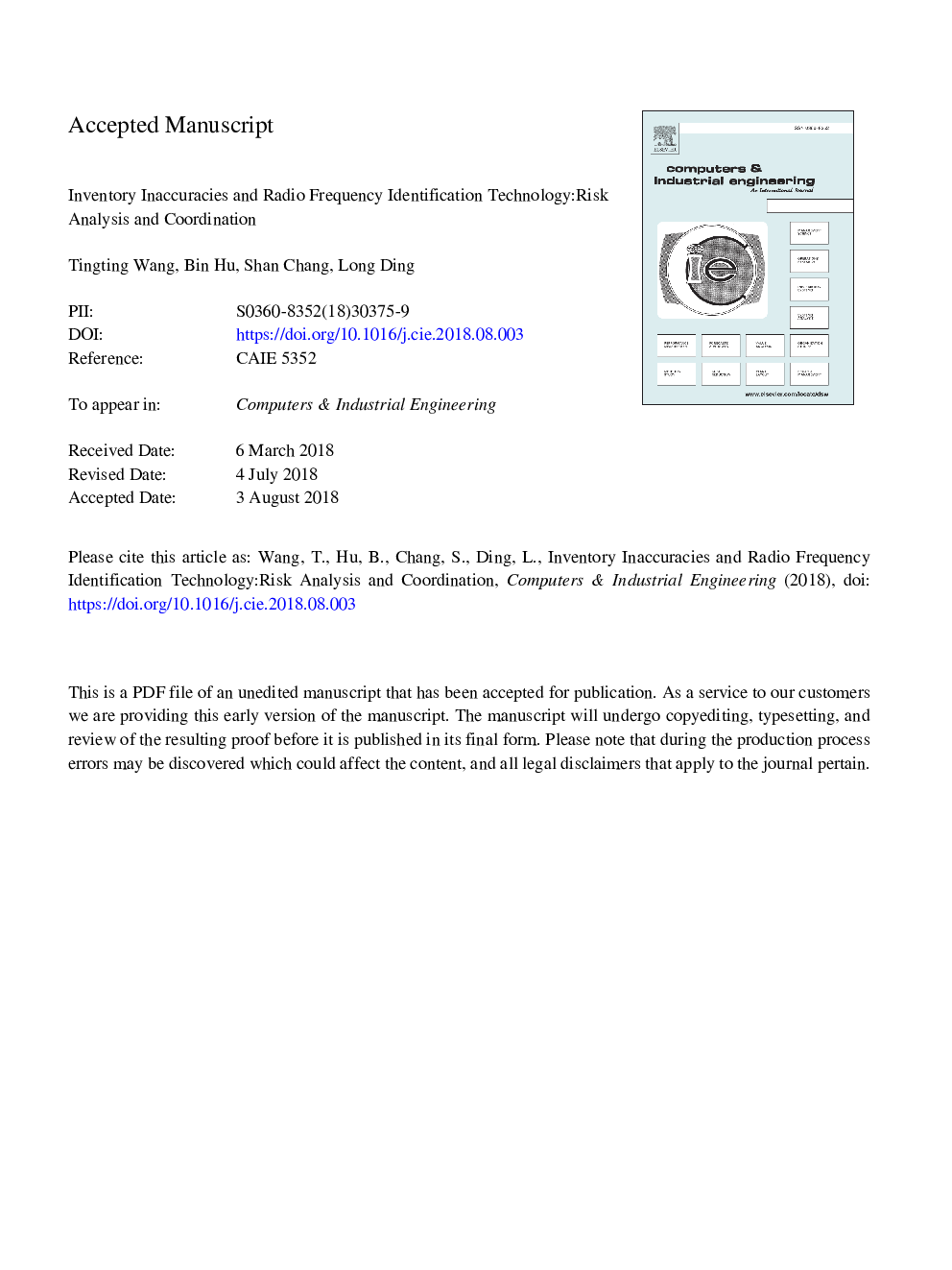| Article ID | Journal | Published Year | Pages | File Type |
|---|---|---|---|---|
| 8942576 | Computers & Industrial Engineering | 2018 | 45 Pages |
Abstract
Inventory inaccuracy is a major cause of operational inefficiency in inventory management, which is prevalent in many industries. Radio frequency identification (RFID) technology has been a promising solution to inventory inaccuracy. This paper investigates the impact of RFID implementation on supply chain decisions with shrinkage and misplacement problems. We assume that the supply chain consists of a risk-neutral manufacturer and a risk-averse retailer. By considering both fixed cost and tag cost of RFID adoption, we study the agents' incentives for RFID adoption in both centralized and decentralized supply chains. The Conditional Value at Risk (CVaR) criterion is adapted to measure the retailer's risk attitude. We focus on exploring how the risk attitude affects the agents' incentives and identifying the conditions to coordinate the supply chain under implementation of RFID. We show that the agents' incentives may not be perfectly aligned, and the supply chain can afford much higher tag cost (fixed cost) if the retailer become more risk-neutral. We also indicate that the agents' incentives to adopt RFID depend on the retailer's risk attitude. Further, we find that when the tag cost is sufficiently low, the incentives of supply chain members increase with the risk-averse level increasing. Numerical results show that the agents' incentives for RFID adoption in the coordinated case are stronger than that of the uncoordinated case.
Related Topics
Physical Sciences and Engineering
Engineering
Industrial and Manufacturing Engineering
Authors
Tingting Wang, Bin Hu, Shan Chang, Long Ding,
